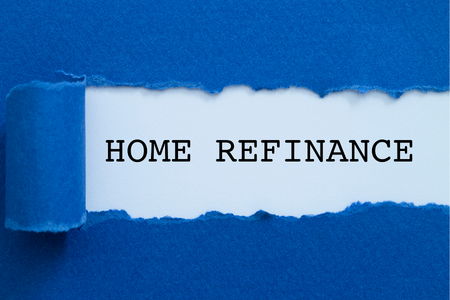Welcome To Our Mortgage Educational Blog About:
How Do You Refinance A Mortgage In Edmonton

The term mortgage refinancing describes the act of taking out a new mortgage in order to pay off the existing one and consolidate debt, typically when the interest rate on the old mortgage is higher than that of the new one.
As with most forms of debt consolidation, the idea behind refinancing a mortgage loan is to lower your monthly payment and save money on interest over time. In this article, we’ll look at how this refinancing works in Canada and how it can be an effective way to save you money and simplify your financial situation.
However, at the heart of this process lies one simple question – why would anyone want to refinance their mortgage?
With this question in mind, let’s look at how refinancing works and the many benefits you could be missing out on by not considering it an option.
Know your options
Whether you’re looking to access more cash or simply wanting to switch lenders, mortgage refinancing can be a good option. But there are a few things you should know before you decide if it’s right for you.
First of all, do some research on your current options to ensure that your existing rate and terms can’t be improved upon. A quick call or email is all it takes, so don’t put it off: get started today!
Ultimately, any refinance decision is about improving your situation—whether that means getting better rates or reducing your monthly mortgage payments.
What happens during the process of refinancing my mortgage?
When you refinance your home, you simply replace the existing mortgage loan with another. That means it’s no different from going to your current bank or financial institution and getting a new loan for your home.
One important thing to note is that when you refinance your home, it doesn’t mean that you are buying a new house. Instead, you are just borrowing more money from your lender to pay off your current loan (or vice versa). Refinancing can be a great option especially when interest rates have gone low. However, there is much more to consider when making this decision as we will explain below.
Why should I refinance my mortgage loan?
Mortgage refinancing is one of those financial actions that is kind of confusing but also kind of good.
However, the bottom line here is that it’s really not all that hard to refinance your mortgage, and it could end up saving you quite a bit of money over time.
Refinancing helps you borrow more money.
If you already have a mortgage, you might be able to get a little more money by refinancing it.
This means that you’ll essentially borrow more money on top of your existing balance and pay back a new loan with a different interest rate and term.
Keep in mind that your monthly payments will increase. You also need to make sure that it makes financial sense for you to do so.
Talk with your bank or financial institution about what kind of interest rates they offer—and don’t forget about any closing costs associated with applying for a new loan.
Refinancing helps you get a lower interest rate.
Mortgages are paid off over a set number of years—usually 25. So, if you want to lower your monthly mortgage payment and shorten your amortization period, you’ll need to do mortgage refinancing.
When you do, you’ll get a new agreement that resets your monthly payments at a different interest rate. That means less interest paid overall and potentially thousands of dollars saved.
And if that’s not enough to convince you, remember that there is no penalty or fees for refinancing, so why wouldn’t you take advantage of one of these deals when they become available?
Mortgage refinancing helps you change your mortgage type.
Refinancing is a great way to change your mortgage type. Several different options are available, and these depend on your current financial situation, what you’re looking for, and your needs.
You may be able to get a lower interest rate, switch from a variable to a fixed rate, or even pay off some of your debt with an equity loan. After all, lately, Canadians have benefited from the best-fixed rates ever in decades!
Talk to an expert today and ask them how they can help you change your mortgage type with their services. We will be able to explain more about how it works and if it would be beneficial for you at all.
Refinancing can help you with renovating your home.
Some homeowners might find that they’re better off saving their money and using it to renovate their homes rather than refinance.
In fact, if you know you want to renovate your home but don’t have enough money saved up yet, taking out a fixed-rate mortgage can give you access to some funds while also locking in a low-interest rate. This step can save you from unnecessary credit card debt.
Remember, though, that unless you have a steady income and good credit rating, borrowing too much on your home loan could lead to problems down the road when mortgage rates inevitably rise again.
If your current home is worth less than what you owe on it, or if you expect prices to drop further over time, it might be worth having a conversation with us about whether or not refinancing your home makes sense for your situation.
Refinancing helps you invest.
One of the most common reasons people refinance their mortgages is to access cash from a line of credit attached to their home equity. This is usually done for two reasons: to buy a more expensive home or as an investment vehicle.
If you are looking at making a new real estate purchase and taking out less than what your current home is worth, you can use cash from your home equity line of credit (HELOC)/home equity loan to help fund that purchase.
You’ll be able to pay off any outstanding debt on your mortgage, and your HELOC will be treated like an amortized loan so long as you pay it down within five years. You can also look at other options including cash out refinance loans.
What are some things I need to know about mortgage refinancing?
Refinancing is a great way to lower your monthly payment. But, it’s not right for everyone. Here are some things you should consider before deciding whether or not to refinance your home loan.
How long have you been with your current mortgage lender?
The longer you’ve been with a lender, usually means they have more information on your financial standing, so they’re able to determine if you’re a good candidate for mortgage refinancing. Most mortgage lenders are usually willing to offer you an incentive (like a low-interest rate).
What will happen to my rate if interest rates rise?
Mortgage refinance rates change frequently, and many lenders that offer prepayment options won’t change them unless market conditions change significantly.
Are there any costs of refinancing my mortgage?
Interest rates and potential fees (legal/registration fees etc.) of refinancing vary depending on several factors, including your current interest rate and how long until your current fixed-rate period expires. However, some brokers can cover the costs for you, depending on the situation.
Mistakes to avoid when refinancing a mortgage
Refinancing a mortgage might seem like a simple process, but several mistakes could come back to haunt you. Many of these mistakes involve cutting corners and not doing your research. That’s where a mortgage broker in Edmonton can help!
Mistakes such as these could lead to an increase in your debt-to-income ratio, putting you at risk of defaulting on your loan and losing your home. To avoid making these common errors, take time to learn about refinancing before you go through with it.
Contact me today for help with financing options and answers to all of your questions about how to refinance a home within Edmonton or anywhere in Canada.
We’re happy to help!
If you need more information about the topic or any other questions about home buying mortgages, don’t hesitate to contact us.
Are you ready to apply for refinancing? Reach out to me directly or start your application here: www.sandraforscutt.ca/mortgage-application/
Recent Educational Blogs
First Responder Mortgage Program
Jan 2026 | First Responder Mortgage ProgramAt Metro Mortgage Group, we have deep respect for the everyday heroes of our city — the members of the Edmonton Police Service, EMS, and Fire Rescue Services. Your commitment keeps our community safe, often at great personal...
Pros and Cons of a Home Equity Line of Credit (HELOC)
Dec 2025 | Pros and Cons of a Home Equity Line of Credit (HELOC)If you’re a Canadian homeowner, you’ve probably heard friends or family talk about using a home equity line of credit, or HELOC. People often use it to renovate, consolidate debt, or help kids with school...
What the Latest Bank of Canada Rate Cut Means for Canadian Borrowers and Homeowners
Nov 2025 | What Rate Cut Means for Canadian Borrowers and Homeowners On October 29, 2025, the Bank of Canada made headlines by cutting its benchmark policy rate by 25 basis points. This move brought the policy rate down to 2.25%. For Canadians with mortgages, loans,...



